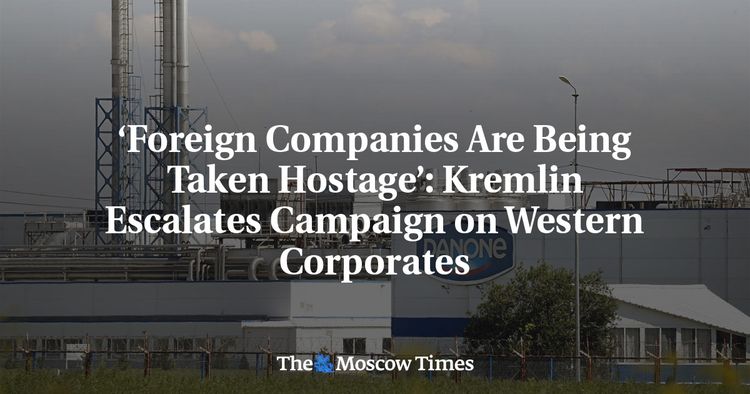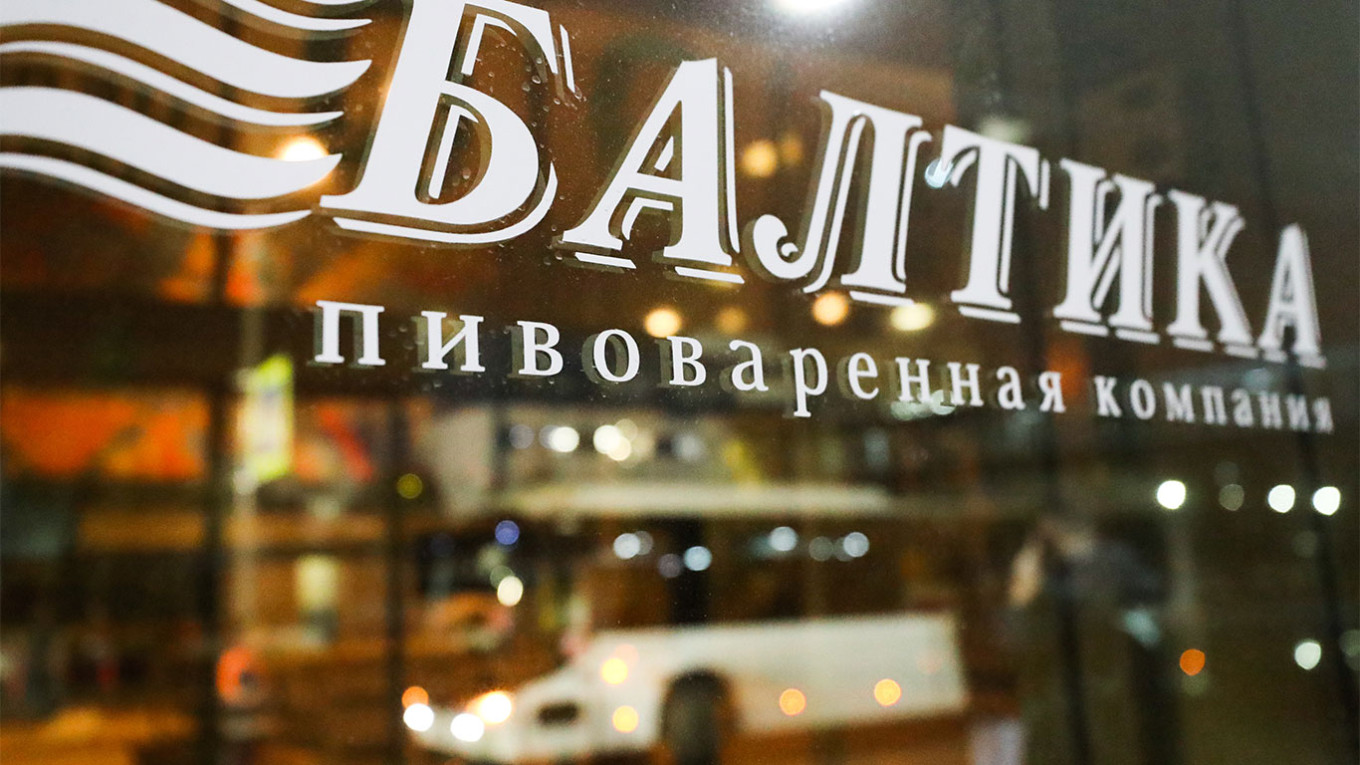‘Foreign Companies Are Being Taken Hostage’: Kremlin Escalates Campaign on Western Corporates - The Moscow Times

According to experts, the recent action taken by the Kremlin to confiscate Carlsberg and Danone's assets in Russia is the most audacious attack on foreign companies operating in the country. This move is expected to raise further alarm among businesses that have chosen to continue their operations in Russia.

President Vladimir Putin is transferring the authority of the Russian branches of French food producer Danone and Danish brewer Carlsberg to individuals who are loyal to his regime, as per reports from local media and government corporate registries. This action can be seen as a confiscation of assets worth more than $1 billion.
Both corporations have extensive business activities in Russia and had openly declared their intention to withdraw from the nation. However, they had not yet ceased operations or completed a sale deal.
According to the Kyiv School of Economics (KSE), Danone, the biggest maker of dairy items in Russia, made $3 billion in earnings in Russia the previous year. Taimuraz Bolloev, a close associate of Putin and with ties to Kremlin-preferred tycoons Yury and Mikhail Kovalchuk, as well as Arkady Rotenburg, will be assuming control over its Russian subsidiary.
Carlsberg, a company known for producing beer, is set to be transferred to Yakub Zakriev. Yakub Zakriev happens to be the nephew of Ramzan Kadyrov, the leader of Chechnya and a close associate of Vladimir Putin. This particular region, located in the North Caucasus, has been facing significant unrest. According to an analysis conducted by KSE, Carlsberg's Russian branch, Baltika, managed to generate $1.6 billion in sales during 2022.
According to Maria Shagina, an expert in economic sanctions at the International Institute for Strategic Studies (IISS), this demonstrates that Russia is ready to implement retaliatory actions against Western corporations in order to please the newly established ruling class. The process of wealth redistribution resembles the era of the emergence of oligarchs in the 1990s.
Ever since it encroached upon Ukraine, Russia has continuously made declarations of forcefully acquiring Western companies operating in the country. However, the most extreme actions taken so far, such as the appropriation of Finland's Fortum and Germany's Uniper earlier this year, appeared to be targeted towards energy firms. The Kremlin justified these takeovers by citing national security concerns or as retribution for Germany's nationalization of a local branch of Russian gas behemoth Gazprom in 2022.
Experts are saying that the Kremlin, after seizing control of the Russian operations of two prominent food and beverage companies and giving them to loyalists, is expected to continue this trend and take more similar actions in the future.
According to Nigel Gould-Davies, an esteemed expert in Russia and Eurasia from the International Institute for Strategic Studies, when you repeat an action for the second time, it signifies that it was not an isolated incident. This should raise concerns for everyone involved.
Timothy Ash, a knowledgeable individual in the realm of Russian investment and an economist at RBC BlueBay Asset Management, expressed his opinion that the future appears bleak for Western businesses operating in Russia. According to Ash, it is highly likely that these businesses will be seized by Russia, as President Putin aims to compensate his loyal supporters and strengthen his regime.
Gould-Davies suggested that the Kremlin's sudden action might be in direct response to the recent rebellion by the Wagner mercenaries. This indicates that Putin is now willing to blatantly disregard the rights of investors in order to maintain his allies.
Although it may cause Western companies who have remained in Russia to worry, an immediate widespread departure is improbable due to the barriers imposed by the Kremlin on companies attempting to leave.
"It ought to motivate other firms to depart," remarked Shagina. "However, any fresh disinvestment will encounter obstacles, spanning from the consent of the Russian government to settling an emigration charge."
Businesses hailing from countries perceived as hostile must seek authorization from a governmental committee before they can trade their properties. Assets operating in sectors of high significance, such as energy, must obtain Putin's individual consent.
Companies are only allowed to sell their assets for a maximum of half the market price. In addition, they are obliged to pay taxes to the Russian government for a duration of two years or make a single payment of 10% of the sale price as a "contribution" to the government. Once an agreement is reached, businesses encounter challenges in accessing the funds due to capital controls in Russia and the fluctuating nature of the foreign exchange market.
In Western countries, the confiscation is expected to revive the halted discussions regarding how to handle the $300 billion of Russia's Central Bank funds that were seized by the G7 during the war's inception.
Advocates have consistently advocated for the allocation of funds to aid the Ukrainian military or cover the costs of rebuilding, yet they have encountered opposition from authorities.
Ash from BlueBay expressed that a counterpoint to this notion was that undertaking such actions could potentially provoke a response from Russia. However, given that it is occurring regardless, there seems to be little reason to refrain from proceeding.
Gould-Davies stated that if Russia is determined to confiscate the assets of Western corporations or constantly put them in danger, it weakens the notion that Western assets in Russia can negotiate or find a compromise with the immobilized central bank assets in Western financial jurisdictions.
Campaigners have little compassion for businesses that have been sluggish in their departure and are now confronted with the possibility of being taken over by the government.
According to Elina Ribakova, a distinguished member at the Peterson Institute, there was no point in waiting and deceiving oneself by believing that it is still possible to earn a generous income in Russia.
"The balance between risk and potential gain has disappeared, as time passes, the probability of losing everything becomes greater. International corporations are being held captive," she further stated.
Jeffrey Sonnenfeld, an educator at the Yale School of Management who has been advocating for Western companies to separate themselves from Russia since the war began, stated that Danone and Carlsberg are facing consequences due to their sluggishness and lack of determination in implementing their departure plans.
"Both companies had the opportunity to disregard these assets five, 10, or 15 months ago — and benefitted from the increase in stock value where financial markets praised 1,050 other global companies for their bravery in taking appropriate measures," he explained to The Moscow Times.
Instead, they wavered, maybe because of their desire for more or their fear of taking action... Putin took advantage of this vulnerability in leadership.









































